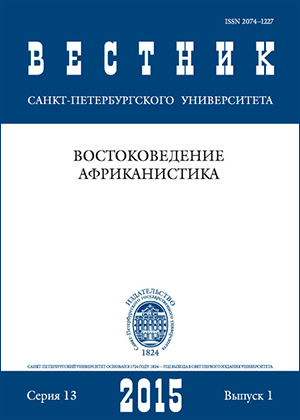Lisan ad-Din Ibn al-Khatib (1313–1374) in the history and historiography of the Arab West
Abstract
An outstanding man of science and literature, diplomat and politician, historian and physician, Lisan ad-Din Ibn al-Khatib (1313–1374) played an important role in the cultural and political life of the medieval Muslim Spain. In his impressive scientific and literary legacy he managed for present to the generations to come about 60 books and treaties on medicine and science, philosophy and poetry, political and social studies, that is why his Muslim contemporaries called him “al-‘Allama” (“the greatest scientist”), and the Spaniards gave him an honorary title of “el Poligrafo” — “the Encyclopaedist”. The history and historiography of the medieval Muslim West — Al-Andalus and al-Maghreb — attracted a special attention of Ibn al-Khatib, who succeeded in creating a unique panorama of religious, social and political life of his motherland — the land of Granada, which under the Nasrid dynasty (of the 13th–15th CC.)
became the last stronghold of the realm of Islam within the Iberian Peninsula. Refs 15.
Keywords:
Al-Andalus, the Muslim Spain, culture, history, historiography
Downloads
References
Downloads
Published
How to Cite
Issue
Section
License
Articles of "Vestnik of Saint Petersburg University. Asian and African Studies" are open access distributed under the terms of the License Agreement with Saint Petersburg State University, which permits to the authors unrestricted distribution and self-archiving free of charge.





